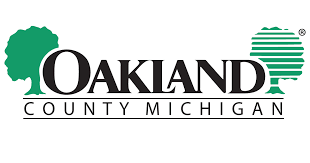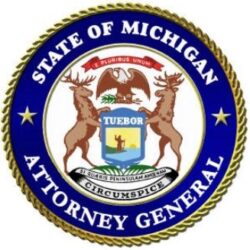
New Map Shows Recent COVID-19 Cases by Zip
New Map Shows Recent COVID-19 Cases by Zip Code in Oakland County
Pontiac, Michigan – Oakland County has added a new map to its COVID-19 data dashboard to enhance the public’s understanding of coronavirus activity by zip code. It shows recent cases confirmed within the past 30 days.
“We’ve launched a new source of information to give our residents a more real time view of the virus in their community,” County Executive David Coulter said. “Transparency and reliance on science and health is key to all phases of combatting a novel virus. As I said when we first released a zip code map, the virus does not respect community boundaries so everyone, everywhere must continue to follow safety protocols. As we reopen safely what slowed COVID-19 now keeps us safe: facial coverings, social distancing and testing.”
The public will be able to view the number of recent coronavirus cases by zip code and compare them to the overall total cases map. Both maps are updated daily. The total cases map will continue to provide an overall picture of how zip codes in the county have been impacted by COVID-19 from the beginning of the pandemic.
Adjustments were also made to our dashboard data to more accurately reflect the date a case is initially referred to Oakland County Health Division. This will eliminate potential lag times between laboratory reporting and information transfers to the state reporting system. This correction does not change the total number of cases or deaths to date in Oakland County and will better reflect the date of diagnosis instead of the date the result was reported in the state reporting system.
For more information on COVID-19, visit www.oakgov.com/covid. Call Nurse on Call at 800-848-5533, Monday through Friday, 8:00 a.m. – 6:00 p.m. with health-related questions. For all other COVID-19 questions, contact the COVID-19 Help Hotline at 248-858-1000 or [email protected]. For up-to-date public health information, follow @publichealthOC on Facebook and Twitter.
For media inquiries only please contact Bill Mullan, Oakland County media and communications officer, at 248-858-1048.







 The future of 45,000 baby salmon hung in the balance as schools across Michigan abruptly closed their doors in March. The normal date for releasing fish raised as part of the DNR’s Salmon in the Classroom program is between April 15 and May 15, but the state’s coronavirus emergency required a swift change.
The future of 45,000 baby salmon hung in the balance as schools across Michigan abruptly closed their doors in March. The normal date for releasing fish raised as part of the DNR’s Salmon in the Classroom program is between April 15 and May 15, but the state’s coronavirus emergency required a swift change.
 In many areas of the state, some teachers were able to practice social distancing and use COVID-19 cleaning protocols that allowed them to enter buildings for short periods of time to feed fish, clean tanks and record educational content for students.
In many areas of the state, some teachers were able to practice social distancing and use COVID-19 cleaning protocols that allowed them to enter buildings for short periods of time to feed fish, clean tanks and record educational content for students.
 The Michigan Natural Resources Commission’s next regular meeting is Thursday, June 11. Due to COVID-19 public health and safety guidelines, the meeting will be hosted in an online format.
The Michigan Natural Resources Commission’s next regular meeting is Thursday, June 11. Due to COVID-19 public health and safety guidelines, the meeting will be hosted in an online format.
 Grab a fishing rod and enjoy some fine Michigan fishing during the 2020 Summer Free Fishing Weekend. This year, it’s Saturday and Sunday, June 13 and 14 – two full days when everyone can fish without a license (though all other fishing regulations still apply).
Grab a fishing rod and enjoy some fine Michigan fishing during the 2020 Summer Free Fishing Weekend. This year, it’s Saturday and Sunday, June 13 and 14 – two full days when everyone can fish without a license (though all other fishing regulations still apply).
 As this year’s open-water fishing season gets underway, anglers at many lakes, rivers and Great Lakes ports may encounter DNR fisheries staff members collecting data about their fishing experiences.
As this year’s open-water fishing season gets underway, anglers at many lakes, rivers and Great Lakes ports may encounter DNR fisheries staff members collecting data about their fishing experiences.

